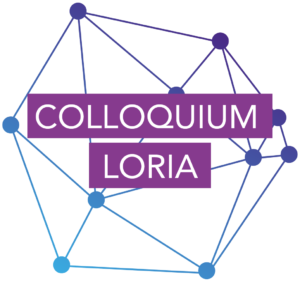Complex Systems, Artificial Intelligence and Robotics
Presentation
The scientific project of the department is to continue its study of complex systems, artificial intelligence, and robotics, but with a stronger focus on homogeneous and heterogeneous interactions in multi-scale complex systems in the areas of:
- computational biology : CAPSID,
- cognitive sciences : BIRD,
- neurosciences : BISCUIT, NEURORHYTHMS,
- robotics : BISCUIT, LARSEN, NEURORHYTHMS .
Meeting these scientific challenges will involve the design of new algorithms and computational models in the following areas:
Computational biology : aiming to facilitate and improve the 3D modeling of large multi-component biomolecular machines, we will develop algorithms and software to help study biological systems and phenomena from a structural point of view. The team’s activities focus on two main themes: (1) computational modeling of protein-protein interactions (protein docking and molecular dynamics simulations), and (2) classifying and mining protein structures and protein interactions (knowledge discovery in biological databases). While the team’s principal activity is algorithm and software development, it will also tackle “real-world” biological problems through collaborations with ex- perimentalists.
Cognitive sciences : we will work on user modelling and recommender systems for web applications with a strong interest in data modelling. Our two main goals are mining information and infer- ring/predicting information. More specifically, we will focus on: (1) collecting interaction traces in order to infer a reliable and relevant user model from the observations; (2) using statistical mod- elling in order to predict future events, and to build recommender systems that can maximise a user satisfaction function. The approach will be applied to various application fields related to health and education (e-health, recommendations in web applications,learning analysis, digital humani- ties…).
Neuroscience: we will focus on understanding better the central nervous system (or parts thereof) by modeling various brain areas, the thalamus, and the motor and sensory nervous systems at micro- scopic, mesoscopic, and macroscopic scales. More specifically, we will focus on: (1) mechanisms of sleep and anesthesia to better anticipate and control the waking phases of patients during surgi- cal operations (the thalamus); (2) the sensorimotor loop to design bio-inspired adaptive controllers for humanoid robots (Central Pattern Generators), in order to control robots by thought (Brain- Computer Interfaces) and to find new exploration strategies for mobile robots (sensory-olfaction); (3) the bio-inspired processing of information and signals (neural fields) and its implementation in hardware architectures.
Robotics: we aim to design new algorithms to give robots the capacity for life-long autonomy and nat- ural interaction. These two objectives have a common requirement for fast on-line computation, learning, and decision-making. For life-long autonomy, the aim is that a robot will continuously perform its tasks while being able to adapt to sudden or gradual changes in both its environment and its morphology. For natural interaction, the aim is that a robot may interact physically and/or socially both with other robots and human beings, taking into account the fact that people and robots learn from each other when they interact. The solutions that we will propose will mainly come from the fields of robotics, stochastic optimization, Bayesian modeling, and neuroscience.
Head
Alain Dutech
Teams
BISCUIT
CAPSID
BIRD
LARSEN
NEURORHYTHMS
Keywords
algorithmic, modelling, computational neuroscience, computational biology, cognitive science, collaborative filtering, social recommendation, human machine interface, machine learning, planning under uncertainty / reinforcement learning, knowledge discovery in databases, parallel / high-performance computing, bio-medical applications


